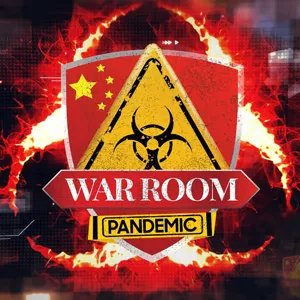By Robert Billard at Brownstone dot org.
August 6th marks the 80th anniversary of mankind's most cataclysmic and ignominious achievement: The first weaponized use of an atomic bomb. At approximately 8:15 in the morning, the bomb "Little Boy" detonated over the city of Hiroshima, Japan. While estimates have varied between 70,000 and 140,000 dead, the sheer magnitude of devastation caused to a largely civilian population cannot be understated.
To this day, much debate rages on regarding the necessity of such weapons in the closing chapter of the Second World War.
The current orthodoxy of American military history, however, stands firmly entrenched that the usage of this bomb (and a subsequent one in Nagasaki three days later) was critical to ending the war quickly and saving the lives of countless Americans and even Japanese civilians who would have assuredly died in the ensuing operation to seize the entirety of mainland Japan.
But how vital was the atomic bombing truly to ending the war? A deeper dive into contemporary sources reveals that the bombing was needless, cruel, and firmly established an abhorrent precedent for a newly established global hegemon.
Operation Downfall
Modern military historians desperately cling to the notion set forth by former War Secretary Henry Stimson, as articulated in the February 1947 issue of Harper's Magazine, that, if forced to carry a ground invasion of Japan to conclusion, it would "cost over a million casualties, to American forces alone." This invasion, dubbed "Operation Downfall," was estimated by Stimson's calculations to last well into 1946 and would have entailed that "additional losses might be expected among our allies"
and that "enemy casualties would be much larger than our own."
And while a large preponderance of scholarship on the matter seeks to reaffirm these claims, it was a dubious metric even at the time. As Barton J. Bernstein wrote in a 1999 issue of the Journal of Strategic Studies, no pre-Hiroshima literature can be found that would back up these claims. It appears to be a postwar invention by Stimson, Truman, et al., to justify the decision. This is an important distinction, as the bulk of pro-atomic weapon usage advocates rely heavily on this claim.
However, perhaps surprisingly to some, the decision was questioned by many senior military leaders within the United States military even at the time.
Contemporary Dissent
The list of senior contemporary military figures that, whether quietly or in confidence to the president, questioned the necessity is extensive and awe-inspiring. These men were either responsible for waging the conduct of the war or were in position to advise the president directly. What follows are some key excerpts that help to challenge the need for the August 1945 case usage of such an abominable weapon.
Admiral William D. Leahy (Chief of Staff to the Commander in Chief, 1942-1949)
"It is my opinion that the use of this barbarous weapon at Hiroshima and Nagasaki was of no material assistance in our war against Japan. The Japanese were already defeated and ready to surrender because of the effective sea blockade and the successful bombing with conventional weapons.
It was my reaction that the scientists and others wanted to make this test because of the vast sums that had been spent on the project.
'Bomb' is the wrong word to use for this new weapon. It is not a bomb. It is not an explosive. It is a poisonous thing that kills people by its deadly radioactive reaction more than by the explosive force it develops.
The lethal possibilities of atomic warfare in the future are frightening. My own feeling was that, in being the first to use it, we had adopted an ethical standard common to the barbarian of the Dark Ages."
Admiral Leahy wrote the above in his 1950 memoir, "I was there: The Personal Story of the Chief of Staff to Presidents Roosevelt and Truman."
While Ike did not serve in the Pacific Theater, he was a five-star general (and later 34th P...





 View all episodes
View all episodes


 By Brownstone Institute
By Brownstone Institute



















